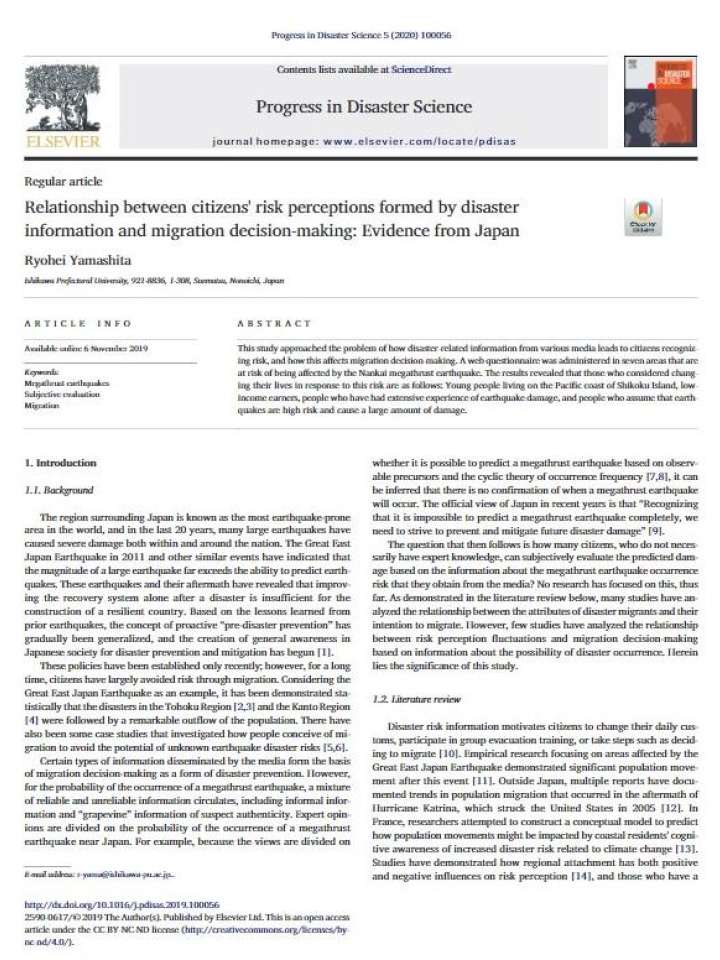Relationship between citizens' risk perceptions formed by disaster information and migration decision-making: Evidence from Japan
This study approached the problem of how disaster-related information from various media leads to citizens recognizing risk, and how this affects migration decision-making. The results revealed that those who considered changing their lives in response to this risk are as follows: Young people living on the Pacific coast of Shikoku Island, low-income earners, people who have had extensive experience of earthquake damage, and people who assume that earthquakes are high risk and cause a large amount of damage.
As a result of this study, the national and local governments should consider that the information issued by the national and local governments did not have a strong influence on disaster prevention migration. Furthermore, if citizens can correctly estimate the changes in the economic and social living environment after migration, they may be able to migrate to safe places before they suffer damage in the event of a major earthquake in the future.
Explore further
